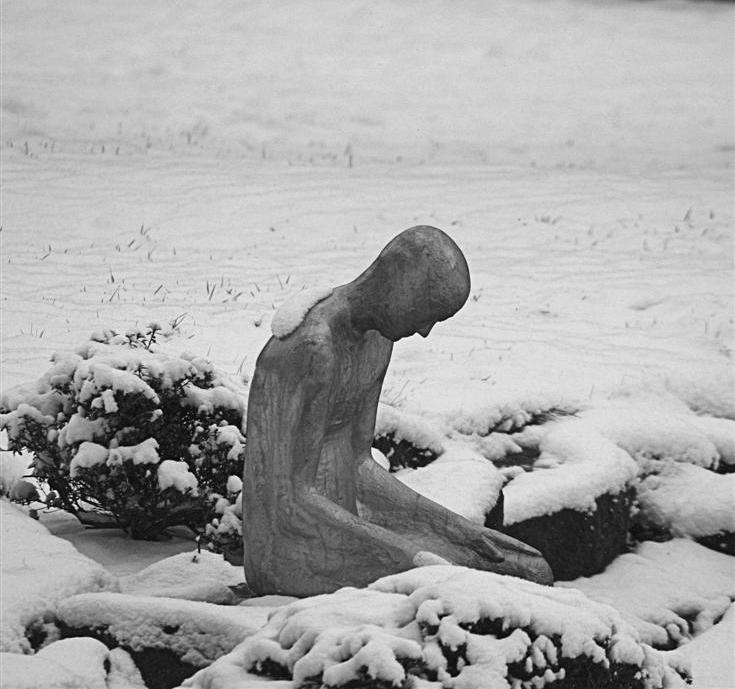Of families, fathers and forgiveness in the whimsical world of Wes
What kind of person are you? Since when have you been so perfect? When did you last fuck up? What are you going to do about it?
Royale Tennenbaum has been evicted from his family by his wife, Etheline, for playing around. He is casual, careless even as he explains it to his three genius children, Chas, the financial whizz, Richie, the tennis star and Margot, the playwrite. 17 years later he wants to be reconciled with his family; he wants to make amends; he is seeking redemption. Besides, he has lost his money and has nowhere to live.
But by that time, his children are pretty messed up. Chas is neurotic; he has lost his wife in an air crash and is bringing up his two boys (all three of them dressed in identical red shell suits) in a rigorous health and safety regime. Richie is depressed; he broke down during a grand slam final and now travels the world alone on his private yacht. Margot is bored, married to a neurologist, but spends most of her days locked in the bathroom, secretly smoking and watching television. They are all regressed. Gratification is either oral, as in Margot’s cigarettes, or anal, as in Chas’s schedules and lists. There is not a lot of sex and what there is, does not seem much fun. Their lives are fantasy; the real world is anaesthetized. They are bored and aggrieved. In their own ways, they all feel their father has betrayed and failed them. They are stuck.
Etheline holds the balance between love and hate. She is the controller, the Jewish mother who single-mindedly created the three gifted prodigies. Narcissistically embroiled in her own sacrifice, she maintains the split between the good mother and the bad father. She wants retribution. Her children are her agents, but at the expense of their own freedom. They have never been able to separate from her. They need a third point of view provided by a redeemed father in order to leave the family jungle and explore the savannah. .
To gain entry to the family home, Royale pretends he is dying of cancer. The children return too, bearing their grievances and sorrows. Margot was always treated as the adopted child by Royal, who dismissed her first play as ‘a lot of kids running around in animal costumes’. Richie is still in love with Margot since their teenage escape camping out in the Africa section of the Natural History Museum. Chas retains the BB lodged between his fingers after being treacherously shot by his father during a game at the summer house. ‘But you’re meant to be on my team!’ Perpetual grievance is a failure to thrive. The world is not composed of perpetrators and victims; it is much more complex and messy than that.
Royale’s deception is discovered. He is sent away again, though not before he has made contact with his family by subverting his grandsons to the excitement of risk. Slowly, the family come to enjoy the vital intention of his comic duplicity, but reconciliation is only complete after he has really died.
As long as their parents are unable to behave as adults, the children cannot grow up either. It takes Royal’s return and his sincere expression of remorse for Etheline, Margot, Richie and Chas to risk forgiveness and feel pity. Royale is an agent of remembering. The acknowledgement of his failure as a father and his desire to make amends awakens the children from their symbolic death. He has given them the greatest gift any father can give their children; his humanity. Their lives can now be realized through forgiveness.
To err is human, to forgive divine. To grow in wisdom, we all need to forgive the bad and bring out the good, but that can be so hard to do. It is said that you can only forgive others if you forgive yourself, but some just accept all the blame; they forgive everybody else but never forgive themselves. The hardest thing of all is to acknowledge your own faults and sins, to be open about them and to forgive them. Yet that way is life.
So, express remorse without qualifications. Hold up your hands. Say, ‘Yes, I’ve behaved like a shit!’ Royale Tennenbaum has had to come to terms with his own selfishness and the abandonment of his children. Gestation, even late gestation, is the parental act of becoming oneself. That way is life, because it accepts the essential human failings without condoning the misdemeanors that have ensued.
But what does it take to forgive or be forgiven. Royal could only be forgiven if he threatened death. In a curious Christian re-enactment, the father had to die so that the children might live, if not in reality, in meaning. The mythic father has to be killed off and redeemed by a different kind of dad, less yet so much more; a dad that can be forgiven and eventually forgotten.
This article was inspired by and in part plagiarised from a talk, entitled Failing Better, which was presented by Dr Alan Lidmila to The Hallam Institute of Psychotherapy on Saturday 28th November at the Showroom, Sheffield, following a showing of Royale Tennenbaums, directed by Wes Anderson.



